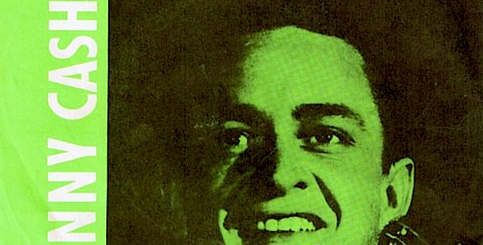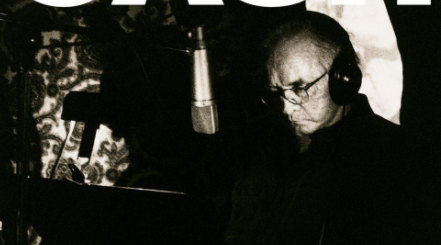Hey Porter by Johnny Cash Lyrics Meaning – The Spirit of Homecoming and Southern Pride
Lyrics
Hey Porter
Would you tell me the time?
How much longer will it be
‘Til we cross that Mason Dixon Line?
At daylight would you tell that engineer to slow it down
Or better still, just stop the train
‘Cause I want to look around
Hey, Porter
Hey, Porter
What time did you say?
How much longer will it be
‘Til I can see the light of day?
When we hit Dixie will you tell that engineer to ring his bell
And ask everybody that ain’t asleep to stand right up and yell
Hey, Porter
Hey, Porter
It’s getting light outside
This old train is puffin’ smoke and I have to strain my eyes
But ask that engineer if he will blow his whistle please
‘Cause I smell frost on cotton leaves
And I feel that Southern breeze
Hey, Porter
Hey, Porter
Please get my bags for me
I need nobody to tell me now that we’re in Tennessee
Go tell that engineer to make that lonesome whistle scream
We’re not so far from home so take it easy on the steam
Hey, Porter
Hey, Porter
Please open up the door
When they stop this train I’m gonna get off first
‘Cause I can’t wait no more
Tell that engineer I say,
Thanks a lot and I didn’t mind the fare
I’m gonna set my feet on Southern soil
And breathe that Southern air
Johnny Cash’s ‘Hey Porter,’ a rhythmic anthem vibrating with the nostalgic stirrings of returning home, encapsulates the excitement and yearning for a return to Southern roots. A meticulous blend of country twang and homespun lyricism, this song illustrates more than a geographical journey; it is a deep emotional inquiry into the idea of belonging and homecoming.
From the chugging rhythm that echoes the motion of a train to the plaintive, repetitive call of its central character to the porter, the track is imbued with the eagerness of anticipation and the warmth of familiarity. It’s a narrative that transports listeners to that moment before the long-awaited return to something dear, a universal sentiment wrapped in Cash’s distinctive baritone.
The Train as a Cultural Metaphor
Trains in American lore have long stood as symbols for change and movement, a representation of transition from one chapter of life to another. In ‘Hey Porter,’ Johnny Cash utilizes this powerful imagery to convey the protagonist’s impatience and excitement. Each query to the porter marks the passage of time, a cadence to the passenger’s swelling anticipation as the train barrels towards the Mason-Dixon Line, the symbolic divider between North and South.
Consider the locomotive a vessel of transformation – the passenger is not just moving towards a geographical point but is being transported closer to a different state of being. The repeated questioning acts as a countdown to the eminent shift in identity that awaits upon disembarking: from wanderer to home-comer, from absence to presence.
Unpacking the Dixie Line: A Journey to the Heartland
The Mason-Dixon Line, more than a mere geographical demarcation in ‘Hey Porter,’ becomes a boundary of emotional significance. Crossing it marks a homecoming to the South, a region synonymous with a distinct cultural identity, history, and pride. Cash’s narrative gives voice to the protagonist’s mounting joy as he approaches this threshold, transforming the line into a gateway to his heart’s desire.
The geographical reference becomes a powerful vehicle for a broader discussion of identity and home. Johnny Cash, a son of the South, understands the unspoken dialogue between a person and the land they consider home. When the character in ‘Hey Porter’ sees the cotton fields and feels the familiar breeze, he knows he’s arrived – no announcement necessary.
A Celebration of Heritage Through Sights and Sounds
Cash’s lyricism sings of a sensory spectacle, where the sight of cotton leaves and the sensation of a Southern breeze serve as tell-tale signs of home. This connection to the land and its defining characteristics mirrors the deep attachment we have to places that shape our narratives and identities, reinforcing the song’s theme of homecoming as a sensual experience – felt, seen, and breathed.
The call to the engineer to ring the bell and to scream the whistle is a call to announce the return, not just to himself but to the entire community. It threads celebration into the tapestry of the journey, insisting that coming home is an event worthy of public revelry and acknowledgment.
The Hidden Meaning: A Reflection of Personal Triumph
On the surface, ‘Hey Porter’ tells the story of a train passenger eager to return home. But dig deeper, and one can surmise it could also be an allegory of Johnny Cash’s own personal journey. Consider the symbolism of his life: a rags-to-riches success story marred by personal struggles, and ultimately, redemption. The porter represents a listener, the train, a timeline of Cash’s life fraught with obstacles, and the protagonist’s pressing questions, a desire for solace and finality.
Could the passenger’s relief at approaching his Southern home be Cash himself, expressing a veiled relief at overcoming life’s adversities? There’s merit to the argument when considering the personal context of Cash’s life. As a man who faced his demons and found solace in his roots and music, ‘Hey Porter’ might be a veiled celebration of the hard-earned victories in his personal narrative.
Memorable Lines That Capture the Sentiment of ‘Hey Porter’
‘I’m gonna set my feet on Southern soil and breathe that Southern air’ – these words, rich with imagery, serve as the climax of ‘Hey Porter.’ They encapsulate the essence of the song, illustrating the desire to return and reconnect with one’s roots. It’s a vivid declaration, evocative of dusty roads and a sun-soaked horizon that resonates with anyone who has ever longed to return to familiar territory.
Furthermore, the line ‘I didn’t mind the fare,’ speaks to a deeper satisfaction. It suggests that the cost of the journey, both literal and metaphoric, pales in comparison to the value of reaching one’s destination. The price of getting there is inconsequential; it’s the arrival that’s priceless, a notion that rings true in our pursuit of happiness and fulfillment.








